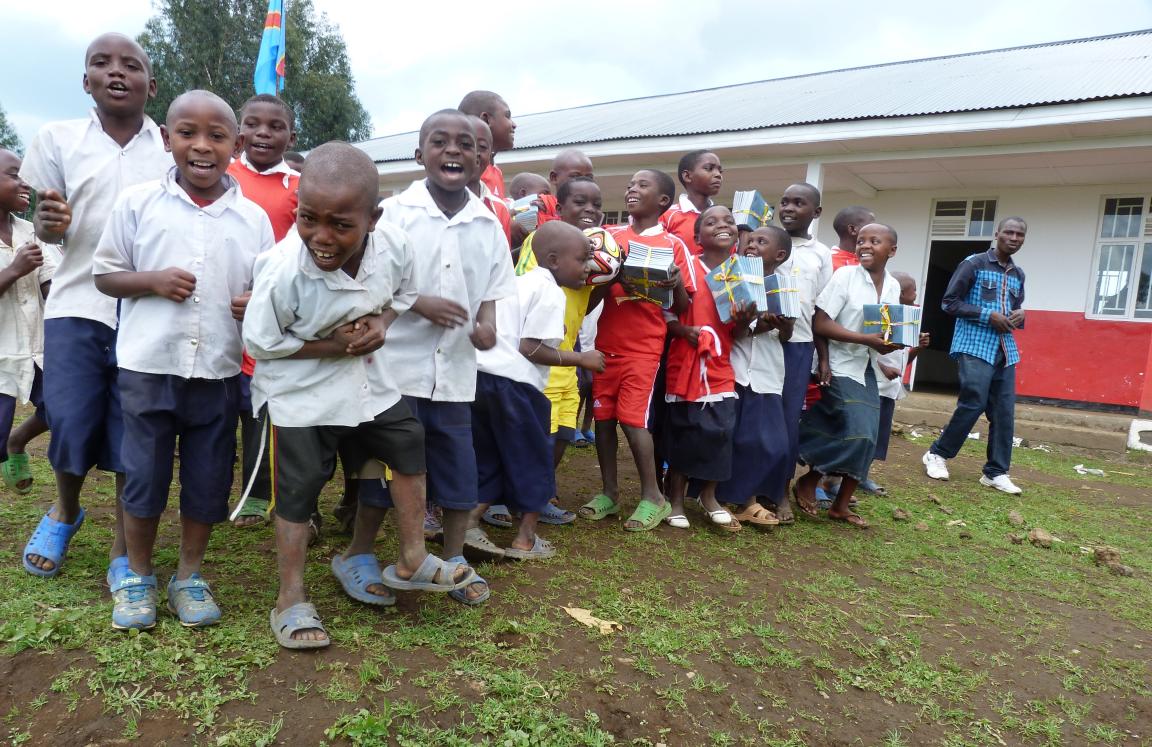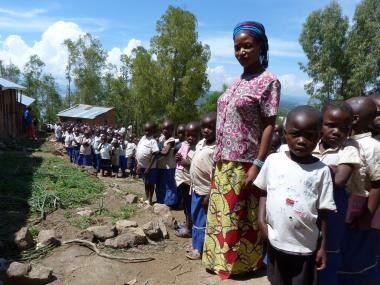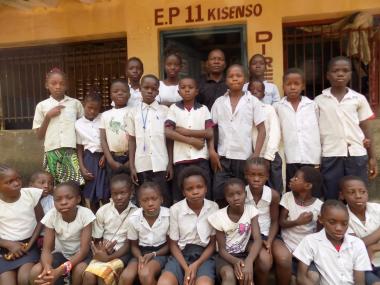
Gender Responsive Public Education and Urban Services
ActionAid DRC also supported three territories in the Kinshasa, North Kivu and South Kivu Provinces of the Democratic Republic of Congo (DRC) to get over three thousand children especially girls and children living with disability who are missing out of school to access education through the establishment of education trust funds. According to the World Bank (2015), despite the enactment of Act 014/004 (2012) which is to guarantee free compulsory primary education for all children in DRC, over 3.5 million children are out of school including 56 % of girls and 45% of boys. 67% complete primary school primary school and among them 60% girls and 74% boys. Among other factors, school fees remain a major barrier to access to education, and many parents pay costs covering teachers’ wages, school operating and administrative expenses etc.

- Over 5,000 children were supported to gain access to education through the payment of their school fees of 1.5 US$ per month for 10 months (1 academic year). 60% of the children are girls. This initiative promises to provide alternative model of securing free, compulsory, quality public basic education for all children irrespective of their status in DRC using local level structures with increased resource allocation from government to finance education. Evidence from this initiative will be used to support AA DRC and the National Education Coalition demand for increased education financing from 14.7% of GDP to 25% by 2023. AA DRC is also working with citizens and teachers union at territorial, provincial and national level to create a strong and unified voice to monitor government programmes in education.

- To enable children clubs hold regular conversations around children’s rights, peaceful cohabitation, basic notion on Sexual and gender-based violence, protection risk reduction, the clubs were supported with logistics like flip chart papers, markers, exercise books and pencils. They were also provided with financial assistance to enable them to implement their action plans with the support of their patrons. Each Club has a committee made up of 7 members and are supervised by 2 petrons (1 lady and 1 gentleman). The Committee with guidance from the petrons has the responsibility of facilitating the activities of the clubs in their respective communities.